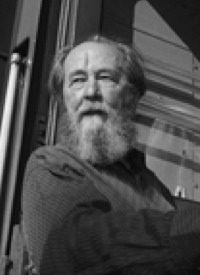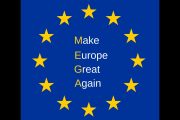
Solzhenitsyn’s work was received favorably by a Khrushchev regime eager to distance itself from the excesses of Stalinism, but after Khrushchev’s death, Solzhenitsyn was blacklisted and finally expelled from the Soviet Union, his Soviet citizenship revoked. He eventually reached the United States, where he labored tirelessly to raise awareness of Soviet communist atrocities. Unlike many contemporary left-wing apologists for the Soviet government, Solzhenitsyn rejected the view that Soviet communism was merely an outgrowth of the old Czarist autocracy. Communism was a pestilential evil independent of cultural heritage, Solzhenitsyn maintained, and would lead to the same results — a police state, pogroms, and poverty — wherever it took root.
Nor was Solzhenitsyn unstinting in his condemnation of the West. He saw Western cultural decadence and secularism as dangers equal to Marxism; the United States he upbraided in a Harvard commencement address in 1978 for a “decline in courage” and a “lack of manliness.”
In June 1975, in a speech at the Washington Hilton that was later entered into the Congressional Record, Solzhenitsyn made the following remarkable statement:
There also exists another alliance — at first glance a strange one, a surprising one — but if you think about it, in fact, one which is well-grounded and easy to understand. This is the alliance between our Communist leaders and your capitalists. This alliance is not new. The very famous Armand Hammer, who is flourishing here today, laid the basis for this when he made the first exploratory trip into Russia, still in Lenin’s time, in the very first years of the Revolution.
And if today the Soviet Union has powerful military and police forces — in a country which is by contemporary standards poor — they are used to crush our movement for freedom in the Soviet Union — and we have western capital to thank for this also.
Solzhenitsyn returned to his native land in the 1990s.



